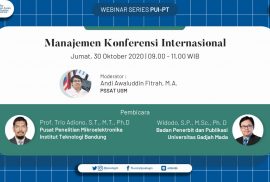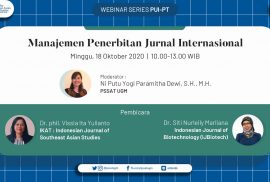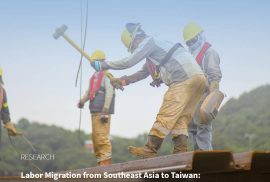IKAT: THE INDONESIAN JOURNAL OF SOUTHEAST ASIAN STUDIES
CALL FOR SUBMISSIONS
A SPECIAL ISSUE: “LAW AND CONTEMPORARY ISSUES IN SOUTHEAST ASIA” (July 2021)
Issue Editor: Agung Wardana, S.H., LL.M., Ph.D.
This special issue of IKAT invites papers submissions under the theme of Law and Contemporary Issues in Southeast Asia published in July 2021. The sub-themes include, but are not restricted to:
Law and Technology
Law and Sustainable Development
Law, Change, and Social Justice
Law and Marginalised Communities (Women, Indigenous Peoples, LGBTQ, Persons with Disabilities, etc)











